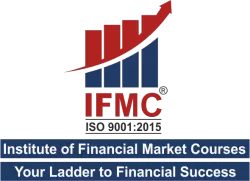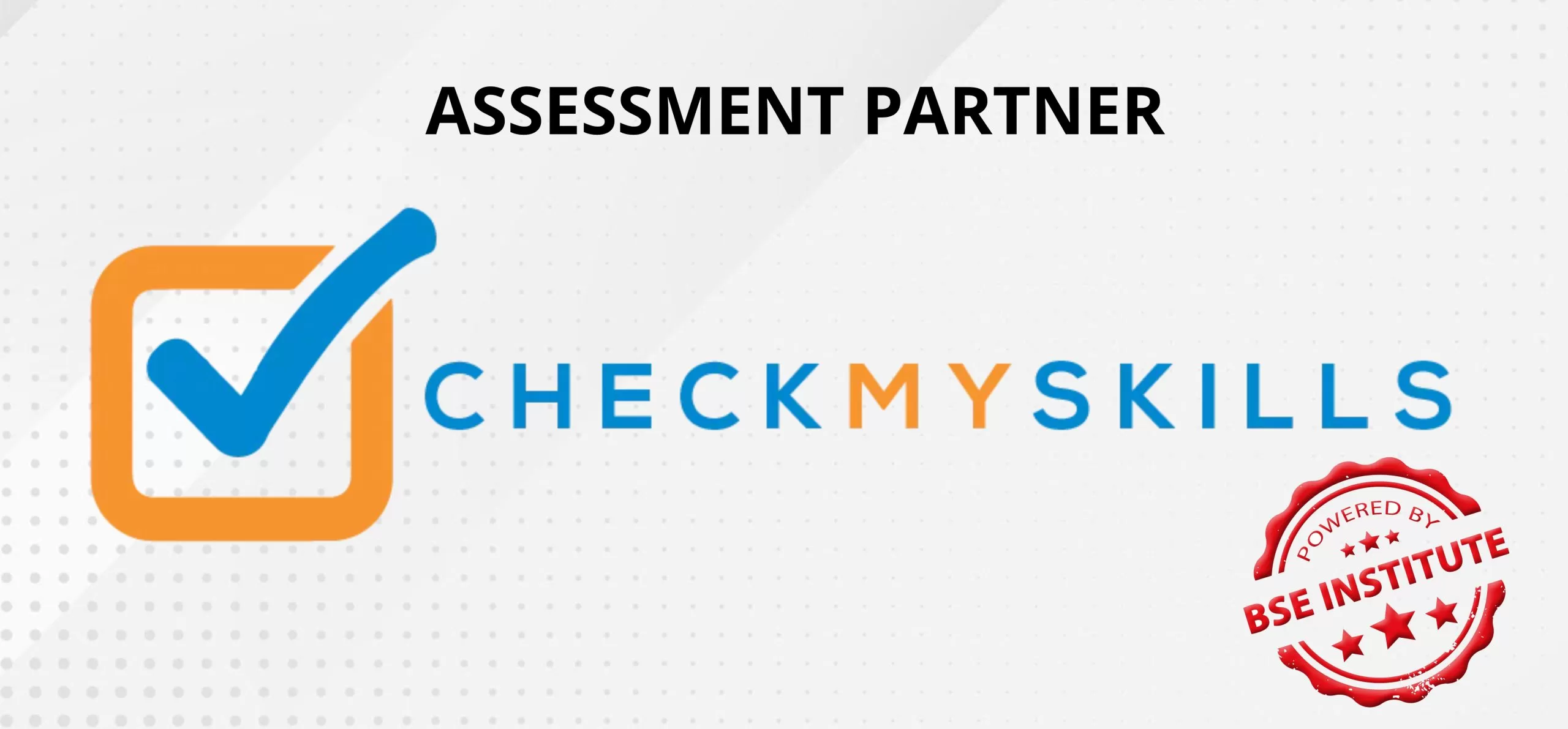
STOCK MARKET COURSE
FOR TRADERS
Stock Trading Course in Delhi & NCR
Learn to Trade Stocks in India with - Stock Market Course for Traders
About “Stock Market Course for Traders” a Programme specially designed for all students and professionals who wish to specialize in the stock market. This is one of its programme for all those who wish to do specialization in stock market trading Equity, Equity Derivative, Currency and Commodity Markets, technical Analysis & Option strategies.
Even those students who have done MBA in Finance, Marketing, and even HR or any other field can specialize in the share market which is the most upcoming sector of the financial market. The four-module program is based on Theory as well as practical.
Unique Feature of Stock Market Course for Traders
- A complete and comprehensive programme for all those who wish to specialize in stock market
- A great add-on course along with Graduation, MBA
- Based on theory as well as practical for complete knowledge
- You enter the stock market with the confidence to trade and invest successfully.
- Faculty with years of experience in Teaching and trading
- Workshops and other programs and meet with industry experts.
- 5 tier exposure Faculty, Practical Faculty, Older investor and Trader, Research Team, group discussion.
- Practical Classes daily with peer learning group under mentorship of senior traders.
- Access to IFMC WATSAPP group
This course will make you eligible for trading in Equity or Share Market, Futures & Options, Commodity & Currency Market, Technical Analysis, Options Basic Strategies etc. You can also learn online stock market course in Mumbai from the top institute.
What You Will Get & Outcome after the Course?
- Get Complete Knowledge of all four markets Equity, Future & Options Trading, Commodity and Currency
- Get Complete practical training on Software used for online trading (ODIN Diet)
- Get Complete knowledge of Technical Analysis
- Get Complete knowledge of Option Strategy Certification
- UDTS Trade Model
- SMT and UDTS certifications by IFMC
Job Opportunities After Top Stock Trading Course
Following are the career options in the stock market after completing the stock market course for traders: fund managers, distributors, lead managers, dealers, registrar, and transfer agents. For entry-level jobs- Equity Advisor, Relationship Manager, Dealer, etc. For Middle-level jobs- Sr. Relationship Manager, Equity Research, Technical Analyst, the Fundamental analyst. For entrepreneurs: Financial consultant, Broking-sub Broking services, Advisory service, Self-investment.
Read More: What is Fundamental Analysis, Intraday Trading Indicator
Fees and Duration
- Registration Fees – Rs 1,700/-
- Program Fee – Rs 35,000 /-
- Program Duration 68 Hrs
- Plus GST
Pay Full or Partial Course Fees
- Must Read Before Buy
⦿ Courses by IFMC are for educational purpose only.
⦿ Trading in live markets should be done strictly in guidance of your Financial Advisor.
⦿ Course does not guarantee any profits in share market.
⦿ IFMC is not liable for any losses made by any student.
⦿ No course extension or refund in any case.
DETAIL CURRICULUM
Module 1: Beginners Module/ UDTS-PAATHSHALA
Module 2: UDTS STRATEGIES
Module 3: Technical Analysis and its Application
Module 4: Option Strategy
Introduction about Technical Analysis
What is technical analysis?
The basis of technical analysis
Difference between technical vs. fundamental analysis
Type of Charts
Introduction to chart
The various types of price charts- Line chart
- Bar chart
- Candlestick chart
- Kagi chart
- Point & Figure chart
- Renko chart
- Three Line Break chart
Trend lines
- What is the purpose of drawing trend lines?
- How to plot trend lines
Candlestick study
One candlestick pattern
- Doji
- Hammer / Hanging Man
- Inverted Hammer / Shooting Star
- Spinning Top
- Marubozu
Double candlestick pattern
- Bullish /Bearish Engulf
- Bullish /Bearish Harami
- Piercing pattern /Dark cloud cover
- Tweezer Top & Bottom
Triple candlestick pattern
- Morning star /Evening star
- Three white shoulders / Three black crows
- Abandoned body (Bullish & Bearish)
- Tasuki Gap (Bullish & Bearish)
Five candlestick pattern
- Rising three methods & falling three methods
Support & Resistance
What is Support?
What is Resistance?
Change of support to resistance and vice versaCharts patterns and their study
Four stages: Accumulation, Mark-up, Distribution and Panic liquidation
Chart patterns:
- Head & Shoulder
- Inverted Head & Shoulder
- Double top/bottom
- Flag & Pennant
- Symmetrical, Ascending, Descending Triangles
- Wedge Patterns
- Rounding top/bottom
- Cup & Handle
- Rectangles Bullish / Bearish
- Triple top/bottom
Gaps & Gaps Analysis
Types of Gaps:
- Common gap
- Breakaway gap
- Runaway gap
- Exhaustion gap
- Island cluster
Oscillators & indicators
What does a technical indicator offer?
Why use indicators?Types of indicators:
- Leading indicator
- Lagging indicator
Moving Averages
- Simple moving average
- Exponential moving average
- How to trade on moving averages
MACD
- What is the MACD and how is it calculated?
- How to trade on MACD
RSI
- What is momentum?
- Calculation of the RSI
- Divergence
- How to trade on RSI
On Balance Volume
- Overview
- Calculation of On Balance Volume
- How to trade on On Balance Volume
Stochastic
- Overview
- Construction
- How to trade on stochastic
William %R
- Overview
- Signals
- How to trade on William %R
Bollinger bands
- Few rules for beginners
- How to trade on bollinger bands
- How to use multiple indicator
Money Flow Index
- Overview
- How to trade on Money Flow Index
Trading strategy
The Dow Theory
- Background
- Principal rule of the Dow Theory
Elliot Waves theory
- Elliot wave basics
- How to trade on Elliot waves
Fibonacci sequence
- How to trade on Fibonacci retracement
- How to trade on Fibonacci extension
Trading psychology and how to manage the risk
Module 4: Option Strategy
INTRODUCTION TO OPTIONS
- Option terminology
- Options payoffs
- Payoff profile of buyer of asset: Long asset
- Payoff profile for seller of asset: Short asset
- Payoff profile for buyer of call options: Long call
- Payoff profile for writer (seller) of call options: Short call
- Payoff profile for buyer of put options: Long put
- Payoff profile for writer (seller) of put options: Short put
STRATEGIES
- Long call
- Short call
- Synthetic long call
- Long put
- Short put
- Covered call
- Long combo
- Protective call
- Covered put
- Long straddle
- Short straddle
- Long strangle
- Short strangle
- Collar
- Bull call spread strategy
- Bull put spread strategy
- Bear call spread strategy
- Bear put spread strategy
- Long call butterfly
- Short call butterfly
- Long call condor
- Short call condor
Who Should Do This Course?
- MBA & BBA/CA/CS/CPT Students
- Anyone who wants experts in the financial market
- 10+2, BA. B.com. B.Sc. Pursuing Students
- Those who want to pursue the career in financial service
Career Opportunity
You can become EQUITY ANALYST, RESEARCH ANALYST, STOCK ANALYST, you become fit for various other posts in various other verticals depending on your overall Qualifications
Admission Criteria and Eligibility:
- For pursuing top stock trading course the candidate should Minimum 12th (Senior Secondary) pass from any reorganization Board/institutions. We always recommend the candidate should pass at least bachelor degree so that it will be bit easier to provide placements. Graduate students get job placement on direct payroll in big companies, and 12th students will get placement in small companies or in sub-brokers office.
- *placement assistance refers to (After getting NCFM and NISM Certification of all 10 modules covered in adv. diploma course)
- All original documents-10th,12thgraduation, other professional degree certification and mark sheets must be submitted in as a self-attested copy/copies at the branch at the time of admission and originals must be shown to the center In Charge, failing which admission may be cancelled
- 95% attendence is must during the programme in each module opted by the student.
- Remarks /Recommendation of faculty and center Head will be taken in the record after each class
- Your certification depends on your Attendance, class assessment, projects, internal exams, NSE exams, Practical classes, Projects and Viva
- The decision of Center in Charge and center Head will be final.
Query Us















